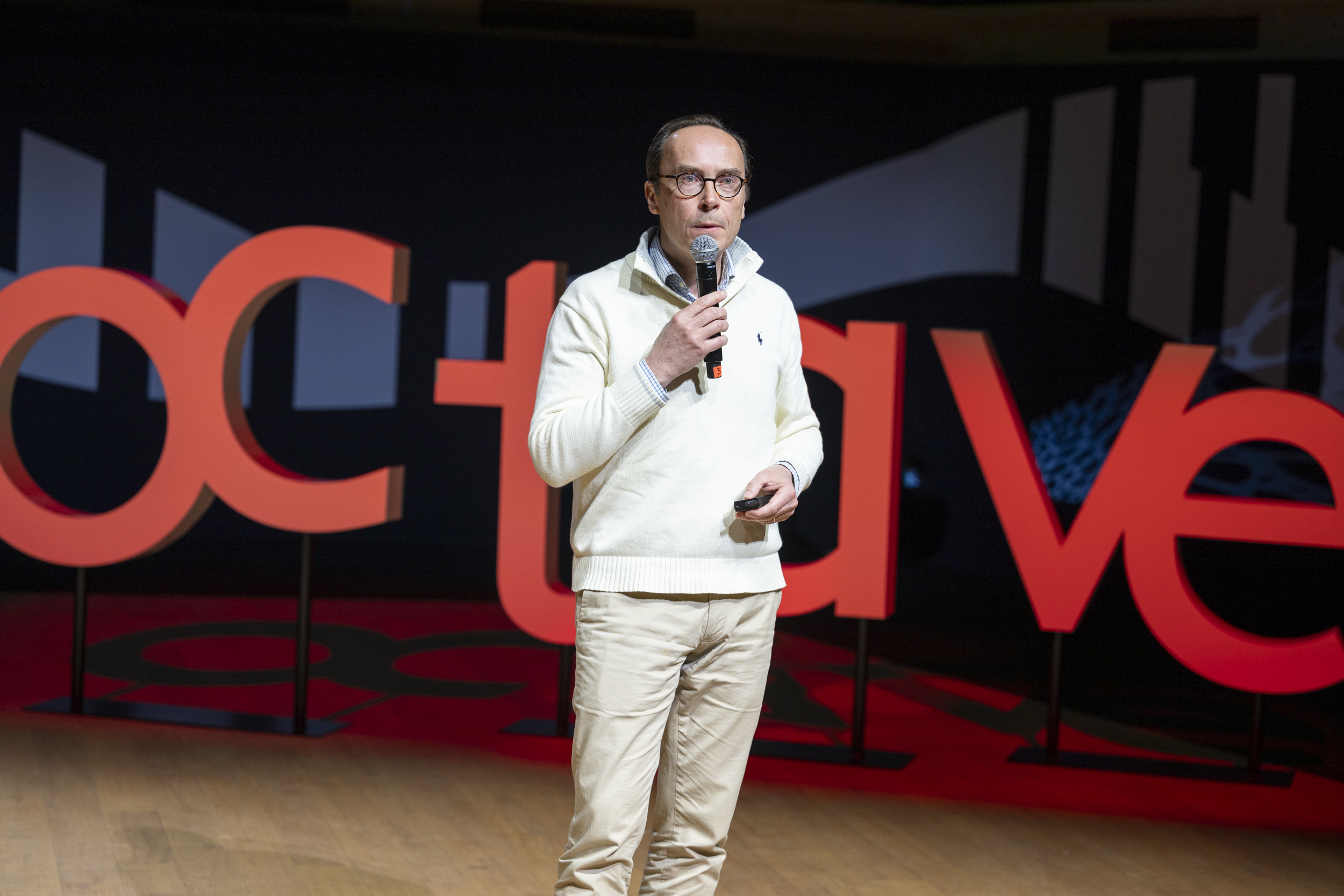Assessing High Potential Remote Workers
Assessing High Potential Remote Workers
Article from Ian MacRae & Roberta Sawatzky for the Octave webmagazine
Imagine waking up each morning having the freedom to decide where you will work from that day. Home office? A favorite coffee shop? The local library? Or, how about taking the morning off to enjoy extra time with the family…your schedule is yours, as long as the work gets done.
This almost-too-good-to-be-true work arrangement is what millions of individuals globally not only long for, but are realizing. It’s called remote work; when individuals are not required to show up at a physical location on a daily basis. In 2018, cnbc.com reported that 70% of people globally work remotely at least once a week. For some, remote may mean working outside of the office 2-3 days a month, while others are 100% location independent. Some individuals may work as freelancers, while others are employed by an organization that embraces varying levels of remote work. According to ONS, 50% of the UK workforce will be working remote by 2020. This in response to the many benefits remote work provides such as economic stimulation, increased output, employee retention, greater access to top talent, work-life balance, and an extended working age.
However, it would be unwise to assume that the privilege of such work arrangements does not come with certain challenges. In a recent research project, respondents reported issues around loneliness, feelings of isolation, and even hinted at concerns regarding mental health. The greatest need, and solutions, lay in receiving adequate and relevant support from their supervisors or managers. Our research (www.samisremote/research) outlined the competencies (knowledge, skills, and abilities) necessary for success as a remote worker, which can then guide us to better understanding of the competencies necessary for those supporting and leading individuals and teams who may not be physically present all, or part of the time.
Assessing Potential
As already noted, remote working is on the rise, and there is little doubt that employment will become more flexible. To ensure the effectiveness of remote workers, it is necessary to attract, develop and retain potential just as this is important for workers in more traditional working environments. Competencies have been discussed already, but what role does personality play in their success?
Personality traits, measured by the High Potential Trait Indicator (HPTI) are an excellent indicator of performance and potential. These six personality traits have been used to predict leadership potential and career success. Personality traits explain the complex connections between thoughts, emotion and behaviour in the workplace so can also be used to predict and enhance the success of remote workers, and their managers.
We will briefly outline the six traits and implications for each trait and remote working.
Personality and Remote Working
Conscientiousness
Conscientiousness describes worker’s motivation, discipline and capacity for long-term planning. Employees with higher conscientiousness tend to be more self-motivated and able to manage their own schedules and deadlines independently. Those with lower conscientiousness are likely to need more oversight and support when working more independently or remotely.
Adjustment
Adjustment explains how people react to stressors and someone’s ability to manage and regulate their own emotions. Those with higher adjustment levels tend to have an easier time adapting to some of the new demands and stressors of working remotely. Those with lower adjustment levels may find new working environments stressful, but may also find working remotely relieves some of the stressors present in traditional working environments from things like workplace conflict to the challenges of the daily commute.
Curiosity
Workers with higher levels of curiosity enjoy learning new things, like new work environments and processes. Those with higher curiosity are likely to adapt more quickly to new working environments, and are likely to be quicker at picking up new tools and technology associated with remote or flexible working environments.
Ambiguity Acceptance
Ambiguity acceptance explains people’s approach to complex situations and environments. Those with higher ambiguity acceptance thrive in complex and ambiguous work situations, whereas those with lower ambiguity acceptance prefer consistency and clarity. Ambiguity acceptance will be an important trait for predicting success of remote workers because those with higher ambiguity acceptance are more likely to be successful at navigating the intricacies and vagaries of working more independently.
Risk Approach
Risk approach describes how people deal with conflict and challenges in the workplace. Those with higher risk approach tend to have a more proactive style of dealing with difficulty whereas those with lower levels tend to be more reactive (and less constructive). The levels of risk and difficulty associated with remote working can be framed and set-up in a more constructive way to optimise performance. Implementing proper performance management procedures, communication systems and clarifying accountabilities will improve the performance of all remote workers.
Competitiveness
Competitiveness is related to employee’s need to be recognised for their work and demonstrate their own achievements. Those with higher competitiveness often enjoy the opportunities for recognition and competition that a traditional office environment provides, and may struggle to work more independently if their contribution is not recognised.
Support for Remote Workers
Remote working offers workers and managers the opportunity to work smarter…to choose the location that will enable them to perform to the best of their ability. There is no one-size-fits all approach that will work for everyone, however, personality traits explain much of the variation in people’s work styles and their performance. Understanding people and the necessary competencies is essential for good management and developing good HR processes. This is equally important for remote workers as well as those in traditional working environments.
 Ian MacRae is the author of High Potential: How to spot, manage and develop talented people at work which describes how the High Potential Trait Indicator can be used in the workplace.
Ian MacRae is the author of High Potential: How to spot, manage and develop talented people at work which describes how the High Potential Trait Indicator can be used in the workplace.
 Roberta Sawatzky is a professor at the Okanagan School of Business, consultant, and researcher focusing on remote work.
Roberta Sawatzky is a professor at the Okanagan School of Business, consultant, and researcher focusing on remote work.
Share this Post








